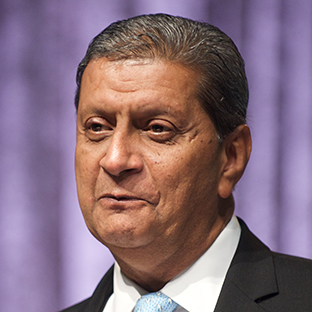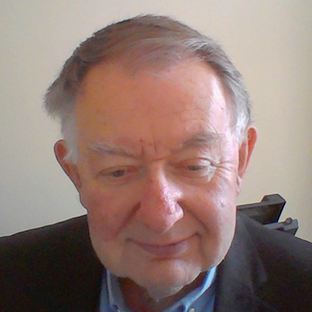The Global Partnerships Forum (GPF), a not-for-profit platform focused on encouraging new forms of collaboration and partnerships, that can help bring about positive social change in society and support the UN’s Sustainable Development Goals.
The Forum was established in 2010 by Amir Dossal, 25 year veteran of the United Nations, to engage business and civil society in addressing the UN's economic and social agenda. Amir has worked across sectors in the international community, including development cooperation, peacekeeping, increasing efficiency and effectiveness of the UN, as well as engaging companies, philanthropists and social entrepreneurs to make a difference in society.
The UN's 2030 Agenda for Sustainable Development, which was adopted by the United Nations in September 2015, resulted in an ambitious set of 17 Sustainable Development Goals (SDGs) and 169 Targets. No government or organisation can expect to make a dent in them without the power of partnerships. In order to create sustainable livelihoods, the goals and targets require the engagement and support of all actors - governments, business, civil society, foundations, philanthropy, academia, social entrepreneurs, and more.
While the SDGs are quite broad and aspirational, they can only be achieved if there is ownership and shared responsibility, and if we can answer the question: What’s in it for me? According to The Economist “The SDGs are unfeasibly expensive. Meeting them would cost $2 trillion-3 trillion a year of public and private money over 15 years. That is roughly 15% of annual global savings, or 4% of world GDP.” In 2015, Official Development Assistance or government contributions amounted to approximately $130 billion, which is woefully inadequate and a real challenge for developing countries. However, it also provides an opportunity for business to look at the value proposition of doing well and doing good. And for the first time, the international community has formally recognised, and indeed welcomed the role of business, and the significance of private sector financing as a key driver for sustainability.
Individuals as well as businesses can collaborate with the public sector, including institutions like the United Nations system, the World Bank, and many others who are working at the intersection of aid and investment. It is important to remember these organisations often have a need for private sector expertise, including a deeper understanding of delivery systems on the ground, as well as management expertise that can help with capacity building. It is by working in a collaborative way, with innovative partnerships models, that we can achieve success. In fact, we as individuals need to own the SDGs, and in our own small ways we can contribute to a better humanity. If THE SDGs are MY SDGs, we can make a difference.
How you can get involved:
The GPF works with stakeholders to develop implementation strategies, high-impact programmes, and governance systems for the SDGs. Below is a summary of our focus areas, and how you can get involved:
Food, Hunger, Malnutrition: SDG #2
The GPF has a strategic alliance with GODAN focused on the provision of open data for agriculture and nutrition. GODAN strives to build high-level support among governments, policymakers, international organizations and businesses to solve long-standing problems and to benefit farmers and the health of consumers through new technologies. We invite you to become a GODAN partner, please visit this link.
Training Our Youth: SDG #4
The Global Partnerships Forum has developed a suite of capacity-building training programmes on diplomacy, entrepreneurship, women in leadership, and more to support and sustain the SDGs in the future. The GPF is committed to ensure inclusive and quality education for all. We invite you to join us on this mission to promote lifelong learning. If you are interested in supporting one of our training initiatives, please contact info@partnerships.org. We would be delighted to collaborate with you.
Gender Equality: SDG #5
UN Women and the GPF work together to accelerate gender equality and empowerment of women. UN Women supports inter-governmental bodies in their formulation of policies, global standards and norms, helps Member States implement these standards, and leads and coordinates the UN system’s work on gender equality as well as promote accountability. To support the important mission of UN Women, please click this link.
Marine Sanctuaries: SDG #14
The GPF is a cofounder of the Ocean Sanctuary Alliance (OSA) is a partnership of UN Member States and leaders from across disciplines, to restore and sustain the world's ocean by securing national commitments to establish science-based marine sanctuaries. The OSA’s mission is to assist Member States in the creation of at least 10% of the oceans as marine protected areas within national jurisdiction by the year 2020. We welcome your support for OSA’s work, please visit this link.
Violence Against Children: SDG #16
The GPF has a strategic alliance with the Global Partnership to End Violence Against Children. This initiative, launched by UNICEF and the United Nations, aims to address the scourge of physical, sexual and psychological violence which impacts more than 1 billion children around the world. We invite you to support this noble cause, please email secretariat@end-violence.org
Partnering with the GPF can allow the ideas and actions that have come about through your work with the RSA to move beyond their local impacts and make waves in the global community. This sponsorship can enable your talents to be utilized to enrich a greater society, furthering the purpose and message behind the RSA.
Should you be interested in learning more about the work of the Global Partnerships Forum, please contact Mr. Trevor Wicks, ACIB, FRSA, Senior Advisor of the Global Partnerships Forum, at trevor.wicks@ntlworld.com


Be the first to write a comment
Comments
Please login to post a comment or reply
Don't have an account? Click here to register.